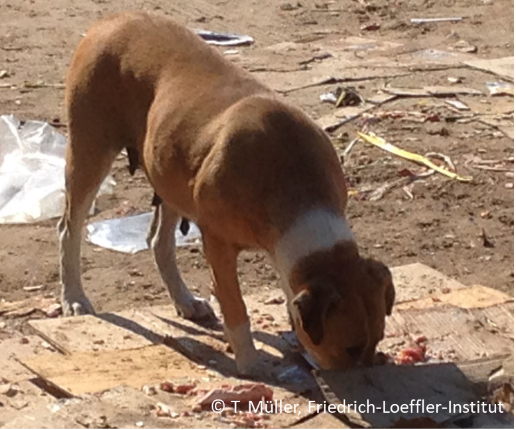Rabies Travellers Information
Of all animals that can transmit rabies, dogs pose the biggest threat to humans as dog bites are how most travelers contract rabies. Except for North America (United States, Canada), Australia, Europe and Japan, dog rabies is present in many countries around the world (see About Rabies / Occurrence of rabies).
While large parts of Latin America have made substantial progress in dog rabies control and are close to elimination, the disease is found particularly in Africa, the Middle East and Southern Asia. In countries where dog rabies is not a problem but wildlife rabies, occasional spillover infections into dogs might occure.
Avoid animals when traveling is the most important risk mitigating measure to avoid exposure to rabid animals
- Resist the temptation; stay away from dogs, cats and wildlife! Don’t touch animals even if they look beautiful, smart and tame.
- Especially healthy or young and abandoned animals exert an attraction to people. Keep in mind that rabies vaccination of pets is not a requirement in countries. Even animals that appear healthy can spread and transmit rabies.
- Teach and supervise your children not to get close to dogs and puppies, cats and kittens as well as wildlife.
- Avoid travelling with your pet when ever possible.
- If you travel with your pet, be aware of and strictly follow international and country-specific movement regulations for pets.
- Avoid bringing animals home to your country. If you do decide to bring an animal with you it should be considered very well in advance. Don't just buy or take a pet on a whim. Be aware of your country specific animal import regulations (see Resources/Pet Travel Scheme).


What activities may increase a traveler’s chances of contracting rabies:
- Long-term travelling
- Backpacking trips, long-term stay in back country
- Cave exploration (bat rabies - spelunkers)
- Working with animals (veterinarians, animal handlers, field biologists, or laboratory workers or NGO employees handling animal specimens)
Is a preventive rabies vaccination needed?
- If you are on a business trip or are a normal tourist for example making a guided (city, safari) tour, cruise trip, hotel holiday, according to WHO preventive vaccination is not needed. If you follow the measures above, you reduce the risk significantly.
- For some travellers, it may be advisable to get the rabies vaccine before your trip, especially if you undertake activities that may increase a chance of contracting rabies. In this case, consult a physician before your trip and check if rabies vaccine is recommended for your destination. There might be specific information availbale you’re your countries’ standing committee on immunization.
What should you do if you are bitten or scratched by a dog or other animal in a rabies endemic country?
- Act calmly but quickly
- Immediately wash all bites and scratches thoroughly by using plenty of soap and running water.
- Seek medical care immediately, even if you don’t feel sick or the wound does not look serious. If local physician cannot help ask for a hospital or a bite treatment centre.
- Start post-exposure treatment immediately by getting a vaccine after you have been bitten. Even if you have received a preventive vaccination before your trip, it is still recommended to seek care if you get bitten or scratched by an animal.
- Be prepared to cancel your trip and travel back to your country or to another area to receive medical care. Be aware that vaccines and other rabies biologicals are not available everywhere in the world.
Read more:
https://wwwnc.cdc.gov/travel/yellowbook/2020/travel-related-infectious-diseases/rabies